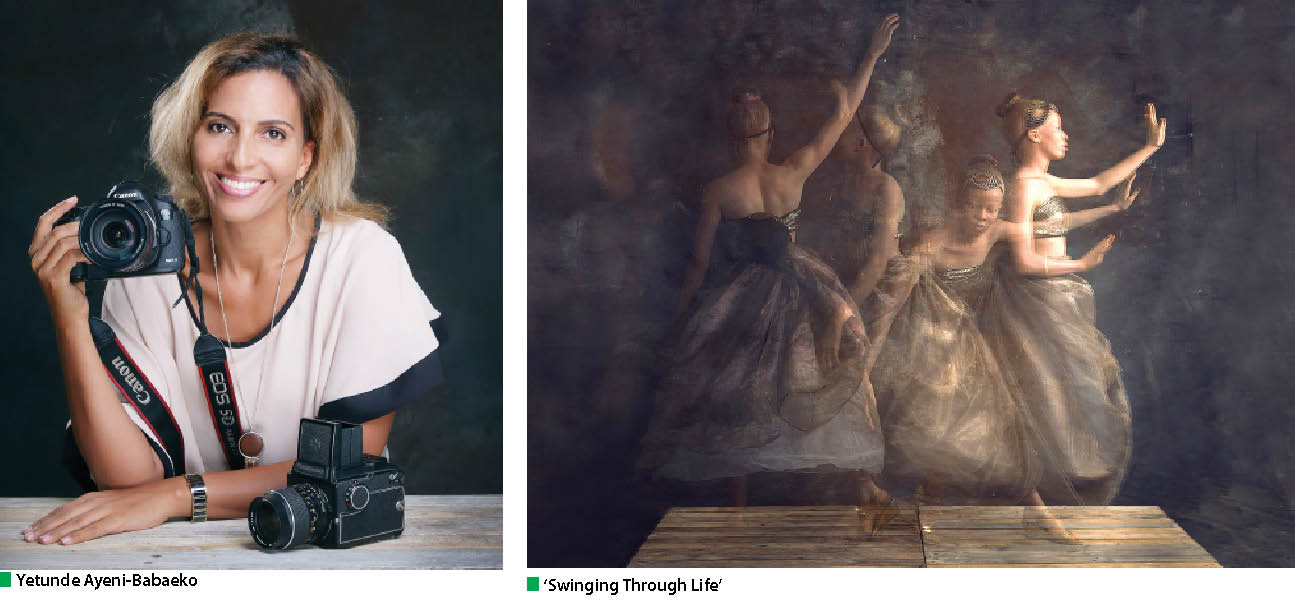Albinism: through the lens of Ayeni-Babaeko
With what organizers have described as “twenty thought provoking photographs”, Yetunde Ayeni-Babaeko, a social activist cum photographer now occupies spaces at Temple Muse, the art exhibition villa at the heart of Victoria Island, Lagos. Tagged: ‘White Ebony’, Ayeni-Babaeko said the exhibition is a continuation of her social activism which is focusing societal attention on the […]

With what organizers have described as “twenty thought provoking photographs”, Yetunde Ayeni-Babaeko, a social activist cum photographer now occupies spaces at Temple Muse, the art exhibition villa at the heart of Victoria Island, Lagos.
Tagged: ‘White Ebony’, Ayeni-Babaeko said the exhibition is a continuation of her social activism which is focusing societal attention on the complexity of life that Persons with Albinism (PWAs) face on daily basis. According to the artist, ‘White Ebony’ would be on the exhibition floor for the next six weeks, supporting the recognition and protection of people with albinism in commemoration of the International Albinism Awareness Day, which comes up on June 13 every year.

The challenge associated with albinism is in the eyes of the world. The United Nations notes that “people with albinism face multiple forms of discrimination worldwide. Albinism is still profoundly misunderstood, socially and medically. The physical appearance of persons with albinism is often the object of erroneous beliefs and myths influenced by superstition, which foster their marginalization and social exclusion.”
 But for Ayeni-Babaeko, the pathetic situation deserves to be reversed. She said she is using the exhibition to challenge preconceived notions on albinism with powerful images which reflect a Renaissance beauty through sensitive lighting, composition, and layered stylistic interpretations.
But for Ayeni-Babaeko, the pathetic situation deserves to be reversed. She said she is using the exhibition to challenge preconceived notions on albinism with powerful images which reflect a Renaissance beauty through sensitive lighting, composition, and layered stylistic interpretations.
“‘White Ebony’ takes the viewer on an emotional journey that is filled with nuance as well as controversial in its stark positioning and challenging suggestions. Each work reflects both internal struggles while working through layers of identity and self-actualization, and points to the urgent need to stop the stigmatisation of persons with albinism,” the artist said.
According to her, it’s easy to create a striking image of a person with albinism because of how unique they are.
“But these models were not just put in front of my camera for me to photograph. I was able to really connect with them through long conversations about their daily struggles, sharing with me what their life is like and all this knowledge translated into this new body of work. My work is not there to make you feel good, its purpose is to trigger you to think and expand your knowledge,” Ayeni-Babaeko said.
Sandra Mbanefo-Obiago, development expert and owner of the SMO Contemporary Art recalled how the artist had previously worked closely with members of The Albino Foundation in Lagos, and after in-depth interviews and insightful group discussions, began interpreting their reality through photographs which explore both the alienation and struggles experienced by persons with albinism, as well as celebrates their lives and achievements.
“As in her previous exhibitions, which have tackled issues such as the challenges survivors of breast cancer face, or photographing dancers performing within slums to highlight the needs of populations living in shantytowns, Ayeni-Babaeko’s amazing artistry is heightened by her commitment to social change and supporting marginalized communities,” Mbanefo-Obiago said.
On her part, the Founder and President of the Albino Foundation, Jake Epelle, said working with a sensitive photographer like Ayeni-Babaeko has been a great creative approach to raising awareness about the challenges people with albinism face every day.
“Much more needs to be done to advocate for the recognition and respect of the rights and socio-economic inclusion of people living with albinism. The Foundation works with governments and development institutions to improve the health and social wellbeing of People with Albinism (PWA) in Nigeria,” Epelle said.
Similarly, the Board Member of the Smithsonian National Museum of African Art in Washington D.C. who is also the Partner, and Head, Africa Practice, Hogan Lovells law firm, Andrew Skipper said the law firm is committed to supporting important social causes like ‘White Ebony’.
“We believe that art is a beautiful way of raising awareness and celebrating diversity and inclusion. An exhibition like ‘White Ebony’ by Yetunde Ayeni-Babaeko is testament to the way art helps to strengthen society,” Skipper, whose law firm sponsors the exhibition, said.
“Yetunde’s work is a powerful example of art for social change and we are delighted to showcase her work,” said Avinash Wadhwani, CEO of Temple Muse, the design luxury concept store, hosting the art exhibition for six weeks.
Organisers said ‘White Ebony’ will run between May 25 and July 19, 2019 with a portion of the income from sales going towards supporting people with albinism.
